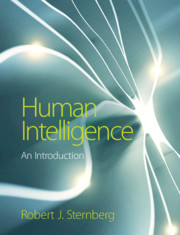Book contents
9 - Genetics/Genomics and Intelligence
from Part III - Theories on the Development of Intelligence
Summary
This observation is attributed to William E. Vaughan, an American columnist and author who liked to be clever in his commentaries on life. Whether generally true or not, the wry humor of his words gives us a way to graciously face the sometimes overwhelming speed at which knowledge seems to accumulate and change. This has certainly been the case in the rapidly evolving fields of genetics and genomics. Genetics, refers to the general field of science that studies the composition of genes and how they work. Genomics is the study of organism-specific sets of genetic material, or chromosomes. A person’s genotype includes all the genes a person will have for his or her life; it is set at the moment of fertilization. It is also often referred to as a person’s genetic make-up. A person’s phenotype is the set of observable characteristics which result from the interaction of their genotype with the environment. Chromosomes are discrete bundles of DNA; they come in pairs, with one chromosome of each pair from one parent. Every individual has his or her own set of chromosomes, or genome, but genomes may be defined at any number of levels of classification: species-specific genomes, such as the human genome (e.g., the genome of Homo Sapiens) or the mammalian genome (e.g., the genome that reflects the common features of different types of mammals – humans, mice, elephants, and so on).
- Type
- Chapter
- Information
- Human IntelligenceAn Introduction, pp. 227 - 252Publisher: Cambridge University PressPrint publication year: 2019



